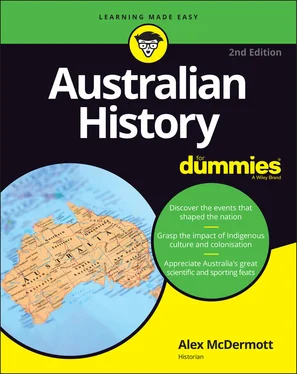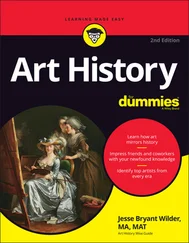 In the early years of the colony, no-one cared about making sure convicts were actively punished after they were transported — the prevailing view was let them start earning money and look after themselves. The transportation itself, the act of exile, was seen as the major punishment (until word started leaking back to Britain that convicted felons were getting rich and doing what they wanted). As long as the convicts were transported, kept out of the way for the period of their sentence, and didn’t cost too much, no-one cared too much about how exactly they spent their time Down Under.
In the early years of the colony, no-one cared about making sure convicts were actively punished after they were transported — the prevailing view was let them start earning money and look after themselves. The transportation itself, the act of exile, was seen as the major punishment (until word started leaking back to Britain that convicted felons were getting rich and doing what they wanted). As long as the convicts were transported, kept out of the way for the period of their sentence, and didn’t cost too much, no-one cared too much about how exactly they spent their time Down Under.
King offered his resignation in 1803 (the stresses of trying to maintain order in an unruly colony seemed to age him considerably) and his resignation was duly accepted.
Thanks to the efforts (and, sometimes, lack of efforts) of various ambitious convicts, the NSW Corps and Governors Hunter and King, the new colony was starting to thrive. However, some of the methods used to create the new productivity had been, let’s say, questionable. On top of that, the convict and ex-convict populace seemed to be placing an exceedingly low priority on decency and decorum. Thanks to the outraged Evangelical reverends and missionaries based in NSW, word had gotten back to Britain about these questionable methods and the unruly state of affairs. No-one was pleased.
The British Government thought they needed a man to set everything — and everyone — straight. Instead, they got someone who quickly set about putting everyone’s noses out of joint.
Choosing Bligh for the job
The missionaries had their great patron — William Wilberforce — and he was close to Sir Joseph Banks. Banks was someone who’d long liked to think of himself as the special patron of this colony and the settlement he’d advised (refer to Chapter 3). At the same time, Whitehall was complaining how incredibly expensive this convict colony was still proving to be. They contacted Banks and asked him if he could suggest anyone who might be suitable to go out and bring this colony back into line, destroy this terrible rum monopoly that everyone’s talking about, and put some morality back into this depraved sink of fallen humanity.
‘Actually, yes’, Banks says (or something like it). ‘Come to think of it, I’ve got just the fellow. A naval protégé of mine. Been in some scrapes, got a bad reputation for having crews mutiny on him (happened twice so far, once the infamous Bounty , the other time closer to home). But for a case like this, it’s probably not such a bad thing — he certainly won’t stand any nonsense. Fellow by the name of Bligh.’
 Britain had started out with only a vague idea of what sort of shape the colony was going to take. Self-sufficient farming was to be the order of the day for the mass of urban criminals being transported from London.
Britain had started out with only a vague idea of what sort of shape the colony was going to take. Self-sufficient farming was to be the order of the day for the mass of urban criminals being transported from London.
In sending William Bligh out to Australia, and in instructing him to crack down on various ad hoc practices that had sprung up in the absence of any workable instructions or assistance coming from Britain, the powers that be were working with a set of mistaken assumptions:
They didn’t expect a society to have so quickly and spontaneously grown out of the dregs that had been deported. But it had.
They didn’t expect it to be so modern, or so mercantile, or to consist of anything other than convicts and self-sufficient yeoman (peasant-like farmers). But it was and it did.
They fully expected it to be a moral cesspit, thanks largely to both ingrained attitudes about the moral depravity of the criminal underclass, and to the bad press the colony had been given by the Evangelicals — Reverends Johnson and Marsden, and missionaries who’d arrived in NSW in the 1790s. But it wasn’t.
Bligh gets down to business
In came Bligh. He knew he’d been chosen by Sir Joseph Banks as the man to bring an unruly and disobedient colony back into line, and that if some serious kicking of heads was in order, those back in the Colonial Office would be fine with that.
 Bligh arrived in the colony in 1806 with a very set idea of the sort of place NSW should be. The original vague idea of convicts becoming a self-sufficient rural peasantry had stuck fast in his mind. The problem, however, was that it had never been like that, and it was never going to be like that. By trying to force NSW to revert to a kind of pre-modern self-subsistence economy and society, rather than assist it in its continued adjustment to the mercantile and commercial realities it was part of in the early 19th century, Bligh was trying to force back the tide. The place was not, and never had been, what these original government orders had told it to be. The place, as one historian put it, was ‘born modern’.
Bligh arrived in the colony in 1806 with a very set idea of the sort of place NSW should be. The original vague idea of convicts becoming a self-sufficient rural peasantry had stuck fast in his mind. The problem, however, was that it had never been like that, and it was never going to be like that. By trying to force NSW to revert to a kind of pre-modern self-subsistence economy and society, rather than assist it in its continued adjustment to the mercantile and commercial realities it was part of in the early 19th century, Bligh was trying to force back the tide. The place was not, and never had been, what these original government orders had told it to be. The place, as one historian put it, was ‘born modern’.
Bligh was not the sort of individual to be disconcerted when reality didn’t conform to what he insisted it ought to be. To his grim satisfaction, he found no shortage of felons and ex-felons on the make, with men and women (both free and unfree) involved in ‘dubious’ enterprises such as trading and buying and selling. So Bligh got to work.
One of main problems Bligh focused on was the favourite form of incentive payment and extra wage: Rum. He attacked the distillation and rum retailing industry, which the officers had already left and was by this time dominated by soldiers and ex-convicts. The inhabitants of Sydney, who at this point made up more than half of NSW’s total population, were livid; the main populace, made up of convicts, ex-convicts and soldiers, particularly so.
Not content, Bligh then went further. He declared that some who had leases and property rights in the township would have to be evicted to fit in with his new town plans. At the same time, Bligh made it clear that he despised the NSW Corps soldiers, claiming they were no better than the convicts and, because many of them were ex-convicts themselves, couldn’t be trusted. Then he finished it nicely by calling them ‘wretches’, ‘tremendous buggers’ and ‘villains’.
Bligh began by outlawing the use of both rum and promissory notes as mediums of exchange. Rum was still the usual form of payment for many workers and traders. Promissory notes were IOUs that passed from one hand to another and could be traded in and redeemed by the individuals who had first released them.
 Both rum payments and notes of exchange had sprung up because Britain had failed to provide the colony with any form of currency in the first place. (After all, why should convicts living as happy self-supporting peasants need something so complicated as money?) These became the common mode of making exchanges and payments throughout the colony.
Both rum payments and notes of exchange had sprung up because Britain had failed to provide the colony with any form of currency in the first place. (After all, why should convicts living as happy self-supporting peasants need something so complicated as money?) These became the common mode of making exchanges and payments throughout the colony.
If rum and promissory notes could be replaced as forms of exchange, well and good, but Bligh didn’t replace them, he just outlawed them. No established business owner in the colony could do business without these forms of pseudo-currency. Without them, the wheels of commerce and daily life would grind to a halt.
Quashing all dissension and threatening eviction
Читать дальше

 In the early years of the colony, no-one cared about making sure convicts were actively punished after they were transported — the prevailing view was let them start earning money and look after themselves. The transportation itself, the act of exile, was seen as the major punishment (until word started leaking back to Britain that convicted felons were getting rich and doing what they wanted). As long as the convicts were transported, kept out of the way for the period of their sentence, and didn’t cost too much, no-one cared too much about how exactly they spent their time Down Under.
In the early years of the colony, no-one cared about making sure convicts were actively punished after they were transported — the prevailing view was let them start earning money and look after themselves. The transportation itself, the act of exile, was seen as the major punishment (until word started leaking back to Britain that convicted felons were getting rich and doing what they wanted). As long as the convicts were transported, kept out of the way for the period of their sentence, and didn’t cost too much, no-one cared too much about how exactly they spent their time Down Under. Britain had started out with only a vague idea of what sort of shape the colony was going to take. Self-sufficient farming was to be the order of the day for the mass of urban criminals being transported from London.
Britain had started out with only a vague idea of what sort of shape the colony was going to take. Self-sufficient farming was to be the order of the day for the mass of urban criminals being transported from London.










